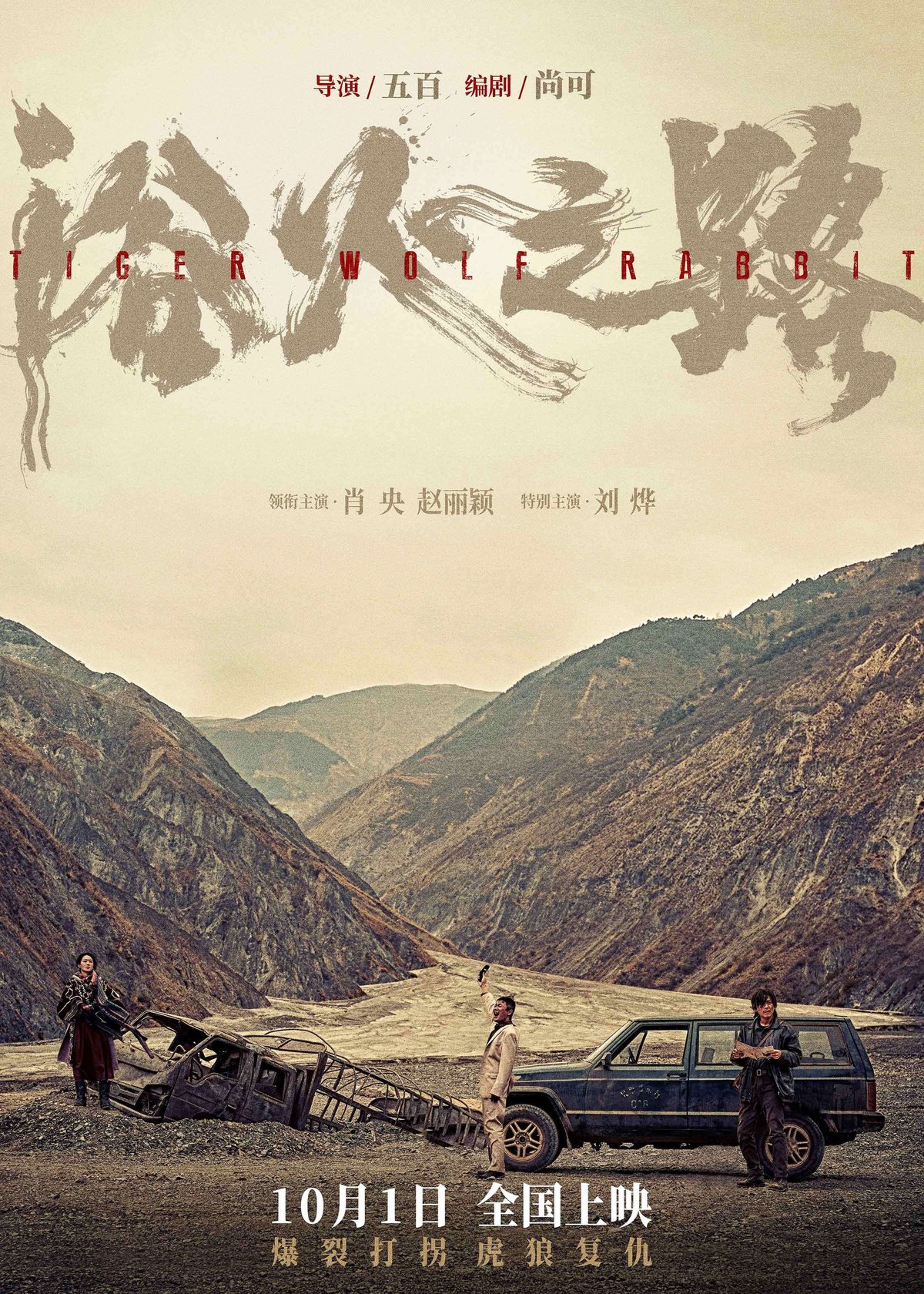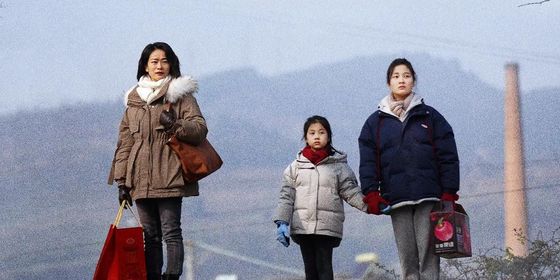Despite a promising opening, this National Day holiday’s box office ends with another round of disappointing performances
While Chinese workers and students enjoyed their hard-earned break over the National Day holiday, it seems many left “going to the cinema” off their entertainment list. Despite box office takings soaring to 494 million yuan on the first day, marking the fourth highest-grossing National Day opening in Chinese film history, the eight-day holiday concluded with just 2.1 billion yuan total—nearly half of 2019’s pre-pandemic numbers.
Mirroring the disappointing box office performance is the lukewarm reception of this holiday’s films. The top three earners—Chen Kaige’s The Volunteers: To the War 2, Guo Shubo’s (better known as Wu Bai) Tiger Wolf Rabbit, and Lu Chuan’s Bureau 749—all failed to spark sustained excitement among audiences, despite their star-studded casts and large-scale productions.
Read more about the Chinese film industry:
- The Rough Reality for China’s Indie Documentary Filmmakers
- What’s Next for China’s Struggling Independent Film Festivals?
- The Rise of Female Perspectives in China’s Movie Industry
Receiving the most heat is Bureau 749, with a bleak score of 4.1 out of 10 on the country’s biggest review platform Douban. Marketed as a science fiction thriller, the film stars Wang Junkai, a member of China’s immensely popular boy group TFBoys, as Ma Shan, the film’s reluctant hero. Brought to the titular weapons research institute Bureau 749, which netizens have dubbed the Chinese version of America’s fictional espionage agency S.H.I.E.L.D., Wang is tasked with using his superhuman powers to save humanity from an alien invasion. The combination of star power and stories of its drawn-out, contentious production (which officially began in 2018 and faced repeated financial struggles) helped Bureau 749 become the third most successful National Day holiday film at the box office, earning over 350 million yuan. However, it has also sparked the most online discussion for all the wrong reasons.
The first two acts follow Ma as he undergoes numerous physical tests to unlock his powers, which are soon revealed to be a pair of giant, seemingly immovable, and poorly computer-generated wings. Many netizens jokingly compared them to KFC’s grilled chicken wings, spawning numerous memes poking fun at the shoddy special effects. It’s only in the third act that the alien—an oversized bird-dinosaur with cartoonishly large eyes—is revealed during its attack on the southern metropolis of Chongqing.
Netizens heavily criticized the film for its cheap and unimpressive visual effects, bad acting, and unoriginal and nonsensical narrative. “In the two-hour movie, there’s a full hour and 50 minutes where you have no idea what they’re doing,” says a film critic in a video that has garnered over 2 million views on the popular streaming platform Bilibili. Another popular comment on Douban that has garnered almost 3,000 likes, reads, “Honestly, those two hours were [such a waste]; I might as well have gone to work.”
Science fiction has long been a difficult genre for Chinese studios to conquer, with offerings often hobbled by poor visual effects that break the immersion. In the past five years, however, the positive reception of adaptations of Liu Cixin’s work in television and film, such as Three-Body Problem (2023) and The Wandering Earth series, have given sci-fi fans hope that China is capable of creating world-class productions. These same viewers are therefore frustrated by Bureau 749, which starkly exposes the ongoing struggles of domestic studios as they strive to develop a distinctive style.
On the other side of the spectrum, Chen Kaige’s The Volunteers: To the War 2 has received praise for being a rare example of a sequel that surpasses its original. The first film in the franchise, released around the same time last year, fell short of critical expectations and achieved a middling 6.9 out of 10 on Douban, leading to an underwhelming box office performance. Many reviewers criticized its loose narrative and lack of signature flair from the acclaimed director. The director’s son, who played a minor role in the film, also drew jabs for his subpar acting.
Meanwhile, Volunteers 2 currently sits as the top earner this holiday season with a rating of 7.1 out of 10 on Douban. This second installment in the trilogy taps once again into audiences’ patriotic zeal through the retelling of how the Chinese People’s Volunteer Army resisted US forces in Korea during the 1950s. But unlike the sprawling cast of characters and celebrity cameos that populated the first film, Volunteers 2’s narrative centers on a small family unit that converges on the front lines. Despite acclaim for the film’s technical prowess and reverence for the People’s Volunteer Army, the film still faces criticism for its historical inaccuracies, (oftentimes) manufactured conflict, and emotional scenes that fall flat. Nevertheless, its unwavering patriotism has helped it take a massive 850 million yuan in box office revenue, breaking into the top 10 highest-earning films of 2024.
Finally, Wu Bai’s Tiger Wolf Rabbit sets a vastly different tone to the holiday’s other blockbusters, telling the story of three parents as they unite in search of vengeance against a human trafficking organization suspected of abducting their children. With its somber subject matter and over-the-top style, the film was marketed as a violent but gratifying tale about karmic retribution. However, these promises ultimately fall short, instead delivering a convoluted plot and confusing ending. Many Douban reviewers noted the film’s pacing flaws and muddled tone, with the introduction of comedic elements in the second act’s road trip segment jarring against the hectic and desperate initial search for the children.
Many reviewers have also pointed out the persistent misogyny faced by the only female member of the lead cast, Li Hongying, played by Zhao Liying, who is depicted as being intimate with the story’s male leads on more than one occasion. One of the scenes that occurs with Cui Dalu, played by Xiao Yang, has been criticized online as “revolting and unnecessary.” The film’s Douban score now sits at 6.3 out of 10, indicating a generally mixed reaction from audiences.
As this October’s film season concludes another round of disappointing performances, concerns are growing about the future of the domestic film industry and its ability to resonate with audiences with increasingly higher standards. Hopefully, producers could take the hint and, in four months’ time, deliver a Lunar New Year lineup with more substance.
















